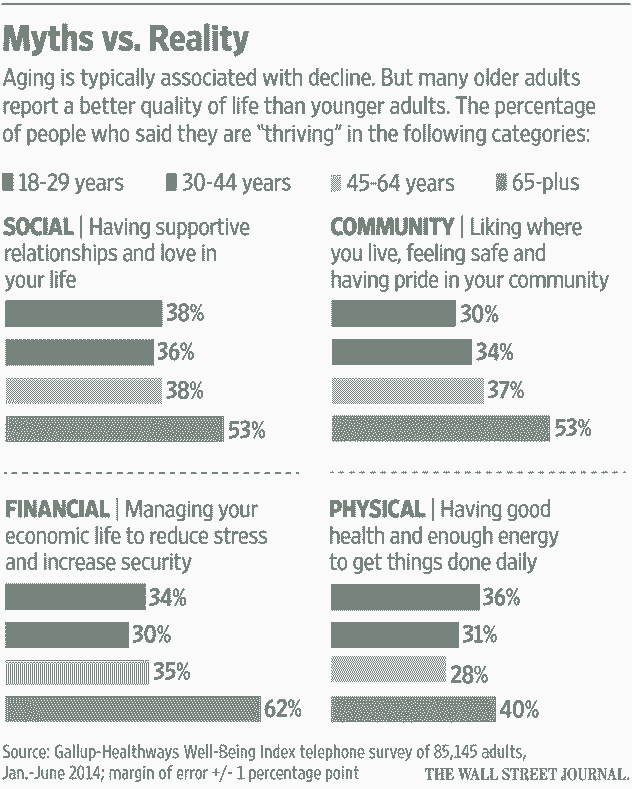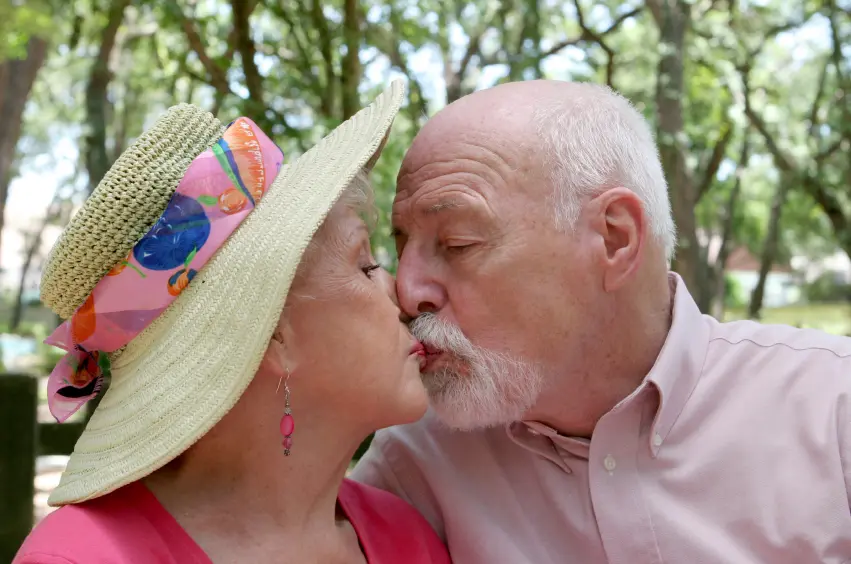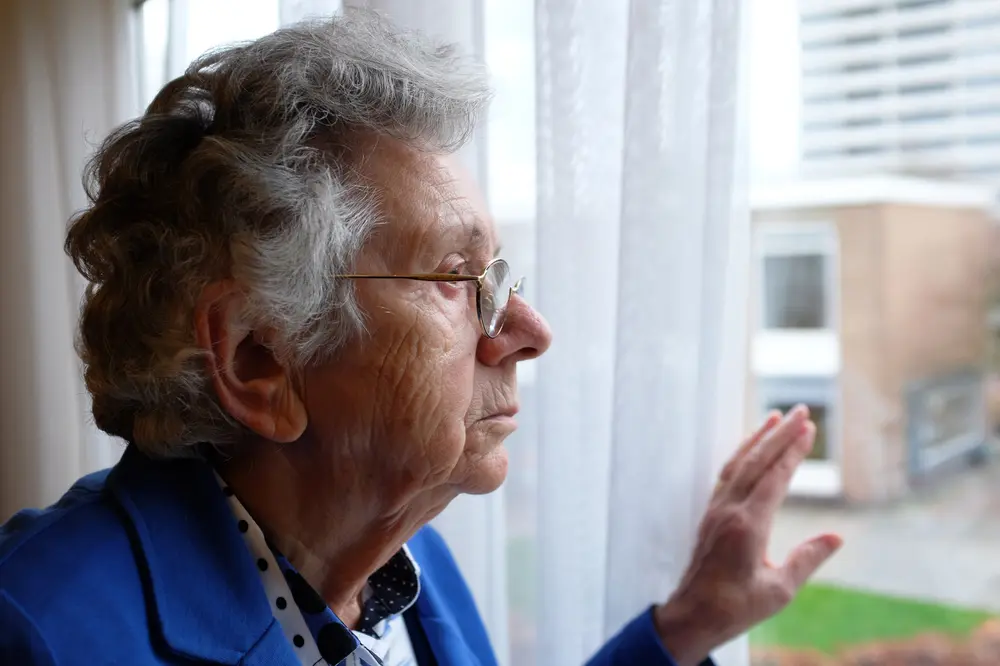Learn more about why negative stereotypes about the older generation are often unfounded and can lead to poorer physical and cognitive health outcomes for older people.
Negative stereotypes about ageing can be damaging to older people’s sense of self and, perhaps surprisingly, their physical health too.
Join us as we look at how negative stereotypes about ageing are often unfounded, and why more steps should be taken to correct them.
Common stereotypes about ageing: Perception vs. reality
Some age-related stereotypes are positive, such as the kind grandparent or wise matriarch. However, in Western culture especially, many of the stereotypes people have about ageing are negative.
Getting older will undoubtedly result in physiological and social changes, but – as research published in The Wall Street Journal (WSJ) indicates – many of these ageing stereotypes are significantly overplayed:
| Negative stereotype | Expectation of 18 – 64-year- olds | Experience of people aged 65+ |
| Memory loss | 57% | 25% |
| Unable to drive | 45% | 14% |
| Serious illness | 42% | 21% |
| Sexually inactive | 34% | 21% |
| Depression or sadness | 29% | 20% |
| Not feeling needed | 29% | 9% |
| Loneliness | 29% | 17% |
| Trouble paying bills | 24% | 16% |
| Being a burden | 24% | 10% |
Not only are these stereotypes significantly over-emphasised, there are many areas in which older people actually have a better quality of life than their younger counterparts:
People tend to feel younger as they get older. 61% of 65 – 74-year-olds feel younger than they are, as well as 57% of people aged 75+.
Mood, relationships, well-being, knowledge and certain forms of intelligence can also be enhanced by age.
This research demonstrates how negative stereotypes about ageing aren’t only held by young people, but also by people in middle and later life.
How can stereotypes about age harm individuals
According to numerous studies, perceiving ageing in terms of only disability or decline leads to poorer physical health outcomes.
Becca Levy, associate professor at Yale School of Public Health, quoted in the Wall Street Journal article above, went as far as describing negative stereotypes about ageing as “a public health issue”.
Regardless of medical history, education level, or socioeconomic status, people with negative perceptions of ageing have been found to have:
- Higher rates of cardiac disease.
- A median life expectancy that’s 7.5 years shorter.
- Less chance of recovering from severe disability.
- Poorer memory and cognition.
- Lower quality diet and exercise regimes.
- Less inclination to take medication as instructed.
- Shakier handwriting.
Having identified these effects, psychologists, neuroscientists, and cognitive therapists have begun identifying strategies to overcome these negative stereotypes and improve the overall health of older people.
Education for all is key to removing these stereotypes. Techniques including those used to treat depression, combat race/gender bias, and remove addictive behaviour have all proved effective at nullifying these stereotypes. Educational treatment even works when used subliminally.
Not only does this alleviate many of the negative health-related factors outlined above, studies have also indicated long-term improvements in self-image, strength, and balance.
Negative stereotypes about ageing have been shown to be inaccurate and damaging from both a physical and cognitive perspective. Ageing is a natural experience that we all face; by changing the way we think and feel about this experience, we can all live healthier, happier lives.
Examples of ageism and stereotypes about ageing
Ageism, the discrimination or prejudice against individuals based on their age, is pervasive in our society. It often leads to harmful stereotypes about ageing, perpetuating myths that hinder the well-being and happiness of older adults. Let’s debunk some of these stereotypes:
Older people aren’t interested in the outside world.
It’s a common misconception that as people age, they become disinterested in what’s happening beyond their immediate surroundings. Older adults often have a wealth of life experience and a continued curiosity about the world. Many of them enjoy staying informed about current events, engaging in community activities, and exploring new hobbies.
It’s important to recognise and support their desire to stay connected to the broader world. Feeling disconnected from their community can lead to loneliness and social isolation in older people.
Older people don’t want or need close relationships.
Human connection remains a fundamental need throughout one’s life. Older people, like anyone else, value close relationships with family and friends. These relationships provide emotional support, companionship, and a sense of belonging. Isolation and loneliness can have adverse effects on mental and physical health, so fostering meaningful connections is essential for the well-being of older people.
As you age, you get more set in your ways.
The idea that older adults become increasingly set in their ways is a stereotype that doesn’t hold true for everyone. Age is not synonymous with rigidity. Many older people remain open to change, learning new skills, embracing new technologies, and exploring different interests. Their adaptability should be celebrated, as it allows them to continue growing and evolving.
Mental and physical deterioration are inevitable in old age
While it’s true that the ageing process can bring physical and cognitive changes, it’s not a guarantee of deterioration. With advancements in healthcare and a focus on a healthy lifestyle, many older adults maintain their mental acuity and physical well-being. Regular exercise, a balanced diet, mental stimulation, and preventive healthcare measures can help mitigate any age-related challenges.
Depression is normal and to be expected in older adults
Depression is not a normal part of ageing, and it should never be dismissed as such. While mental health issues can affect individuals of any age, it’s important to understand that depression is a treatable condition. Older adults experiencing symptoms of depression should seek professional help and support. Addressing mental health concerns is essential for maintaining a high quality of life as we age.
Older people should skip strenuous exercising to avoid injury
Physical activity is beneficial for individuals of all ages, including older adults. While it’s important to tailor exercise routines to individual capabilities and consider any underlying health conditions, regular physical activity can actually help improve strength, balance, and mobility. Consultation with a healthcare provider or a qualified fitness trainer can help design safe and effective exercise plans that cater to older adults’ specific needs.
You don’t need as much sleep as you age
Quality sleep remains important throughout life. While it’s true that sleep patterns may change with age, older adults still require sufficient restorative sleep. Sleep plays a critical role in physical and cognitive health, and sleep disturbances should be addressed to ensure overall well-being. Establishing healthy sleep habits and addressing sleep disorders can improve the sleep quality of older individuals.
Get more out of life with home care
We are experts in providing fully managed, high-quality care at home. Our services are rated ‘Outstanding’ in all areas by CQC – the only live-in care provider to achieve this. Call our friendly and approachable team today to see how we can help you and your family.
Find out how live-in care can help your loved one maintain a high quality of life in their own home for longer. Get in touch with our friendly team.




